In the wake of ongoing scandals and controversies, trust in institutions appears to have eroded. Yet despite the growing public skepticism, most people continue to aspire to be good citizens who take pride in honest work and ethical conduct. This quiet integrity among ordinary people has not disappeared but it has become more discerning. Increasingly, individuals are demanding accountability not only from government but also from the companies they choose to support, invest in, and work for.
This shift indicates a fundamental change in expectations. Citizens and consumers now understand they can influence change through everyday choices. The concept of “voting with your wallet” has moved from a moral ideal to a practical form of civic involvement. Every purchase, investment, or partnership becomes a statement of values, reflecting what we, as a society, decide to support.
I’ve long believed that aligning values with consumer choices is one of the most tangible methods individuals can use to promote ethical and sustainable business practices. It sends a clear message to organizations that integrity and responsibility are the real bottom line. Companies that operate transparently, respect their stakeholders, and make meaningful contributions to social progress are rewarded not only with consumer loyalty but also with long-term resilience.
A clear example of how good corporate governance drives stronger business performance can be seen in companies that embed transparency and accountability into their culture. Globally, Unilever provides a compelling case. The company integrated sustainability and ethics into every aspect of its decision-making, guided by a highly independent board and a commitment to transparent reporting. Its Unilever Sustainable Living Plan, which linked environmental and social targets directly to business performance, helped the company reduce costs, strengthen its brands, and expand market share, particularly among value-driven consumers. Studies by the Harvard Business Review have shown that Unilever’s governance-driven sustainability approach has contributed to long-term shareholder value, outperforming many peers in total returns over the past decade. Well-governed companies not only attract capital but also build enduring trust with customers, employees, and society.
Recent data supports this growing awareness. According to the World Economic Forum’s Global Trends 2021 report, 70% of respondents worldwide said they buy from brands that align with their personal values. More notably, 85% of Filipino respondents believe business leaders have a duty to speak out on social and political issues. This highlights a distinctly Filipino perspective that business leadership is about more than just making profits; it also involves stewardship and nation-building. I recently participated in a panel organized by the International Association of Financial Executive Institutes in Taiwan, where I emphasized that, in the Philippine context, business leaders have a moral obligation to be more civically engaged because what benefits the country also benefits business.
In this context, good governance, sustainability, and social responsibility have shifted from mere compliance to being essential parts of business strategy. They should not be treated as standalone initiatives but rather integrated into a company’s overall strategy for sustainable growth. Investors now evaluate companies not only on financial performance but also on environmental, social, and governance or ESG metrics. Customers look beyond product quality to assess a company’s ethical footprint. Employees, especially younger professionals, seek purpose and integrity in the organizations they join.
This presents both a challenge and an opportunity for companies. The challenge is rebuilding trust through consistent, transparent, and values-driven actions. The opportunity is to demonstrate that profitability and purpose can coexist, and that purpose should guide strategy. When a company’s values are clear, profitability often follows naturally.
Trust cannot be restored overnight. It is rebuilt gradually as credibility is earned and promises are kept. But as both consumers and leaders, we each have a role to play in fostering this culture of accountability. We begin to close the trust gap when institutions respond with sincerity and transparency to individuals’ demands for integrity.
The erosion of trust may be a major challenge today, but it also opens the door to reimagine business as a real force for good, one that not only creates value but also upholds the values that define us. The future of business will belong to those who recognize that integrity and impact are inseparable.
The views expressed herein are his own and do not necessarily reflect the opinion of his office as well as FINEX.
EJ Qua Hiansen is the chief financial officer of PHINMA Corp. and the president of the Financial Executives Institute of the Philippines.

